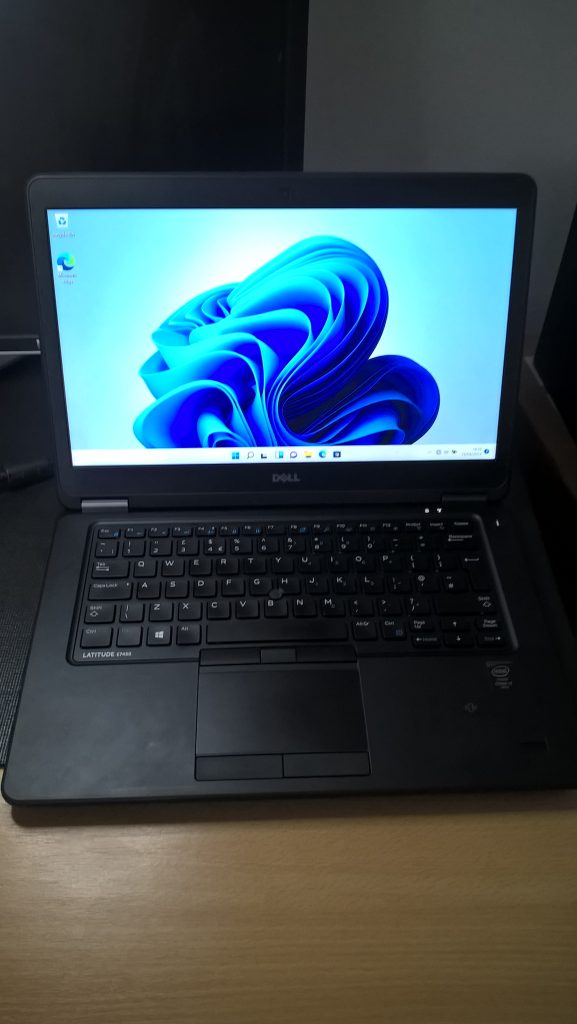Upgrading Your PC: A Comprehensive Guide for Gamer Optimizations
As the gaming landscape evolves, so does the hardware needed to sustain immersive and fluid experiences. For serious gamers, maintaining a capable PC that can handle high resolutions and frame rates is of utmost importance. If you’re reading this, chances are you’ve hit a wall in terms of performance and you’re contemplating an upgrade. In this blog post, we’ll thoroughly explore the nuances of upgrading your gaming rig by looking into potential bottlenecks in specifications, the importance of following a balanced upgrade path, the implications of changing components like the motherboard and RAM, and actionable insights that can help optimize your gaming experience.
The Current Computer Specifications
Before diving deeper into the world of upgrades, let’s take a closer look at your current specs:
- Graphics Card: NVIDIA GeForce RTX 3060 Ti
- Processor: 11th Gen Intel Core i7-11700K @ 3.60GHz, 8 cores, 16 threads
- RAM: 64GB (2 sticks of 32GB)
- Storage: 1TB SSD
With these specifications, you already possess a solid gaming foundation. The NVIDIA GeForce RTX 3060 Ti is renowned for its prowess in rendering high-quality graphics and is capable of handling most modern games at high settings, making it an excellent choice for both competitive and immersive experiences. Meanwhile, your Intel i7 processor is robust, particularly for single-threaded tasks often encountered in FPS games. However, based on the noted issues of frame drops at higher resolutions, it’s essential to identify why your performance may be lagging.
Understanding Frame Drops in FPS Games
Frame rate drops can be highly frustrating, especially during intense gameplay when every millisecond counts. Various factors might contribute to low frame rates at higher resolutions, including:
-
Game Optimization: Some games are better optimized than others for high-resolution gameplay, and demanding titles often challenge even high-end PCs.
-
Resolution and Settings: Higher resolutions mean that the GPU has to render more pixels. While your 3060 Ti is excellent, gaming at 4K resolution could still be pushing its limits, leading to drops in frames.
-
Thermal Throttling: Overheating components can throttle performance, so ensuring proper cooling solutions is vital.
-
CPU Bottleneck: Even with a capable CPU like the i7-11700K, certain game engines may benefit from faster single-core performance or more advanced architectures.
-
Network Issues: Online FPS games depend heavily on network performance. Latency and packet loss can significantly affect your gameplay, which may be misinterpreted as frame drops.
Identifying the Bottleneck
To effectively ascertain what might be causing your frame drops, consider the following approaches:
Monitoring Software
Use monitoring tools such as MSI Afterburner, CPU-Z, or HWMonitor to keep an eye on your CPU and GPU performance along with temperature readings. Monitor metrics such as:
- Frame Rate: Are there specific scenarios in which the frame rates drop?
- GPU Utilization: Is your GPU being fully utilized during gaming?
- CPU Usage: Does your CPU become a bottleneck when gaming?
Benchmarking
Testing your current setup with benchmarking Software like 3DMark can reveal potential performance bottlenecks clearer. Compare your results against similar systems online to ascertain whether your current setup falls within expected performance ranges.
Evaluating Potential Upgrades
Based on your insights and benchmarks, here are some possible areas for upgrade to enhance gaming performance.
1. Graphics Card
While the RTX 3060 Ti is a powerful GPU, if you are struggling with frame rates at full resolution, you can look into upgrading to a higher-tier model like the RTX 3070 or RTX 3080. These GPUs can deliver significantly improved frame rates at higher resolutions. However, consider availability and pricing, as the current market can be unpredictable.
2. Processor
You mentioned your friend’s comments regarding the motherboard when upgrading your processor. To better illustrate this:
-
Compatibility Concerns: If you choose to upgrade your processor, you must ensure that your existing motherboard supports it. Check your motherboard’s model and the corresponding CPU compatibility list to verify that a newer processor can fit.
-
Motherboard Upgrade: If your current motherboard cannot accommodate a more advanced CPU, you’ll be forced to upgrade it alongside your CPU, which may make the upgrade more expensive.
3. RAM
Having 64GB of RAM is more than ample for gaming. However, if you’re considering switching to a new processor that requires different RAM technology, such as DDR5, a RAM upgrade might be necessary. For performance optimization in specific games, you might want to ensure your RAM operates at a higher speed (e.g., 3200MHz or higher) to compliment your CPU’s capabilities.
4. Storage Solution
Upgrading to a faster NVMe SSD could ensure rapid load times and smoother performance, especially with larger game files. The faster write and read speeds of a high-quality NVMe can help minimize stuttering during game load events.
Motherboard Selection
If you decide to switch your motherboard during your upgrades, it’s crucial to select one that offers robust features such as:
- Future Upgradability: Ensure it supports the latest technologies (PCIe 4.0, DDR5 support).
- Cooling Solutions: Look for ample fan headers and heatsinks to maintain thermal efficiency during intensive use.
- I/O Connectivity: Check for the number of USB ports, audio jack support, and other essential connectivity options that suit your gaming setup.
Cooling Solutions
With increased power draw from upgraded components, ensure that you have adequate cooling to prevent thermal throttling. Consider installing more robust cooling solutions such as:
- Upgraded Air Coolers: Aftermarket air coolers can provide enhanced performance over stock coolers.
- Liquid Cooling Systems: For top-tier performance, consider an AIO (All-In-One) liquid cooling option to keep CPU temperatures low under load.
Conclusion: A Balanced Approach to Upgrading
Upgrading a gaming PC is not just about replacing the oldest or slowest component; it’s about developing a balanced and synergistic system that maximizes performance across all hardware. As with any significant investment, evaluate your gaming needs, budget constraints, and future-proofing considerations.
Continue monitoring your PC’s performance while utilizing the suggested upgrades when necessary. Engaging with the gaming community through forums like Reddit can also provide insights and experiences that can further guide your decisions. If done thoughtfully, your upgraded gaming rig will not only deliver exceptional frame rates at high resolutions but also offer you the competitive edge required to excel in the gaming arena.
By understanding the intricacies of each component, you can successfully upgrade your system, ensuring intuitive gameplay and breathtaking visual fidelity for all your favorite titles. Happy gaming!
Share this content:




Your Next Steps for Upgrading Your PC
Great article! Upgrading a PC can indeed seem daunting, but by taking a structured approach, you can significantly enhance your gaming experience. Given your current specifications, it seems like you have a solid base, but there are a few fine-tuning options worth considering to ensure optimal performance.
Prioritize Your Bottleneck
Before proceeding with upgrades, it’s critical to identify your bottleneck. The use of monitoring Software, as you mentioned, like MSI Afterburner or HWMonitor, is invaluable. This will help you pinpoint whether it’s your GPU, CPU, or even network performance that’s throttling your gameplay. Pay close attention to metrics during intensive sections of gameplay – this will help you identify what component needs upgrading first.
Upgrading the GPU
If your benchmarks indicate that your GPU is maxed out while gaming, consider moving to an RTX 3070 or RTX 3080. They deliver impressive frame rates, especially at higher resolutions like 1440p or even 4K. Be mindful of current pricing and availability, which can fluctuate significantly.
CPU and Motherboard Compatibility
Upgrading your CPU can provide noticeable benefits in processing-heavy